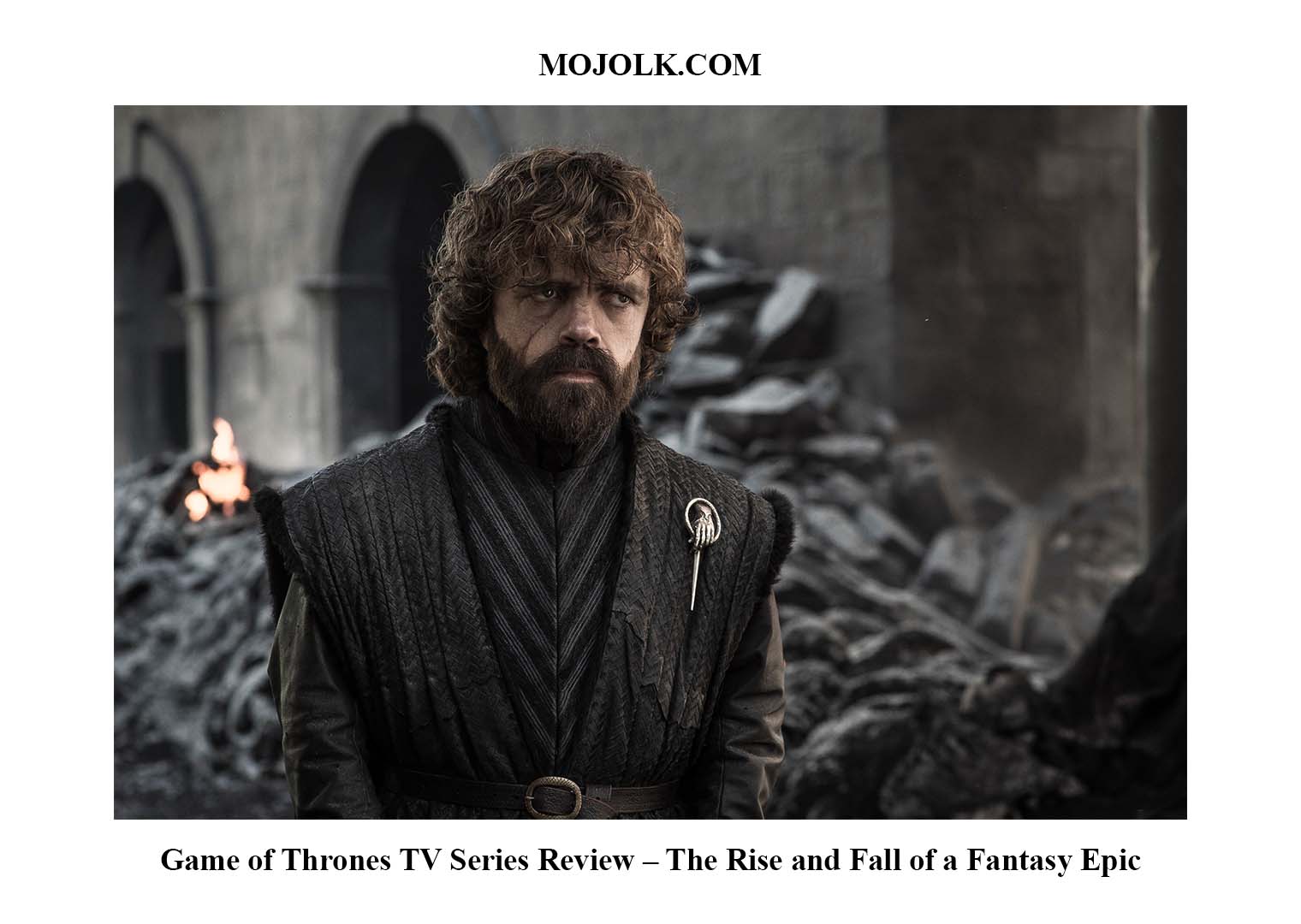Game of Thrones TV Series Review – Power, Betrayal, and Epic Fantasy Redefined
Introduction – Why Game of Thrones Became a Global Phenomenon
Few television series have left as significant a mark on pop culture as Game of Thrones. Premiering in 2011 and based on George R. R. Martin’s fantasy novels, the HBO series ran for eight seasons, capturing the imagination of millions worldwide. Known for its political intrigue, morally complex characters, and shocking plot twists, Game of Thrones redefined what epic fantasy could achieve on the small screen. Despite its polarizing final season, the show’s legacy as a groundbreaking achievement in television remains unshaken.
A Vast World of Characters and Conflicts
One of Game of Thrones’ greatest strengths lies in its vast ensemble cast and layered storytelling. The series introduces viewers to the Seven Kingdoms of Westeros, each ruled by noble houses locked in a deadly game for power. At the center are key families like the Starks, Lannisters, and Targaryens, whose rivalries, alliances, and betrayals drive the plot forward.
Characters like Jon Snow, Daenerys Targaryen, Arya Stark, Tyrion Lannister, and Cersei Lannister evolve dramatically over the series. Their personal journeys, shaped by war, loyalty, and ambition, reflect the morally grey world they inhabit. The show challenges traditional hero-versus-villain narratives, favoring realism and complexity over clear-cut morality.
Political Intrigue, Fantasy, and Realism
Game of Thrones blends traditional fantasy elements with gritty political drama. While dragons, White Walkers, and prophecies add a supernatural layer, the show remains grounded in human motivations and political maneuvering. Themes of power, legacy, revenge, and sacrifice play out across multiple continents and cultures.
The series doesn’t shy away from difficult subjects like betrayal, corruption, and war’s psychological toll. This blend of fantasy and realism attracted a wide audience, including viewers who don’t typically gravitate toward the fantasy genre.
Visual Spectacle and Cinematic Quality
HBO spared no expense in bringing Westeros to life. From the icy expanses beyond the Wall to the fiery ruins of King’s Landing, the production design, costumes, and visual effects created a fully immersive world. Battles like the “Battle of the Bastards” and “The Long Night” rival big-screen blockbusters in scope and intensity.
The show also featured masterful direction and cinematography. Directors like Miguel Sapochnik delivered unforgettable sequences, while composer Ramin Djawadi’s score became iconic, enhancing the show’s emotional and epic moments.
Reception and the Controversial Final Season
Throughout its run, Game of Thrones earned critical acclaim and numerous awards, including 59 Emmys. Its bold storytelling and unexpected character deaths kept viewers hooked. However, the eighth and final season sparked controversy. Many fans and critics felt the pacing was rushed and that key character arcs, particularly Daenerys Targaryen’s, were unearned.
Despite the divisive ending, the show’s cultural impact remains undeniable. It inspired countless discussions, theories, merchandise, and spin-offs. It also paved the way for high-budget fantasy series like House of the Dragon, The Witcher, and The Rings of Power.
Legacy and Influence on Television
Game of Thrones changed the television landscape. It proved that serialized fantasy storytelling could attract mainstream audiences and achieve critical prestige. The show’s success encouraged networks and streaming platforms to invest more heavily in genre programming, raising production standards across the board.
Beyond industry influence, the show impacted fan culture like few others. It created watercooler moments, weekly viewing parties, and online communities dedicated to analyzing every detail. Even years after the finale, fans continue to revisit the series and explore its rich lore.
Final Thoughts – A Once-in-a-Generation Epic
Despite its flawed conclusion, Game of Thrones remains a monumental achievement in television history. Its blend of political intrigue, character-driven drama, and epic fantasy created a compelling narrative that captivated a global audience. The series set a new benchmark for what television could be, and its legacy will endure for generations of storytellers and viewers to come.

